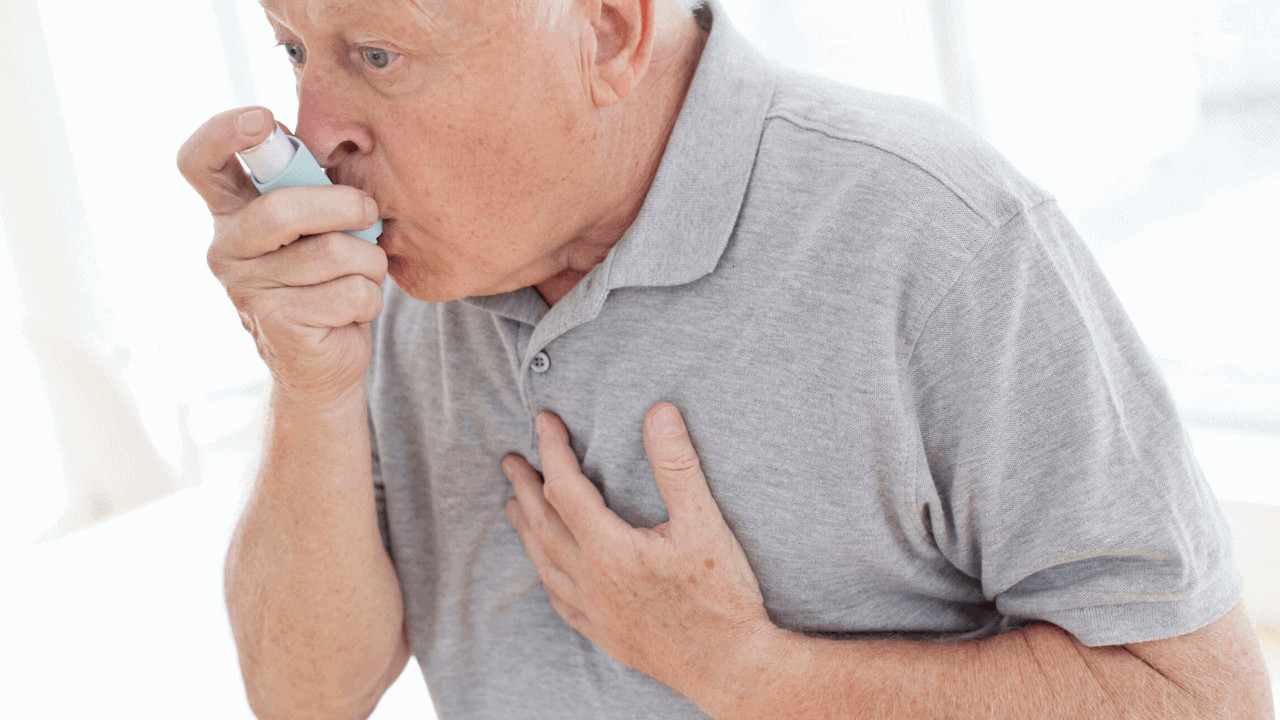Chest – COPD, asthma and cardiopulmonary fitness
COPD
COPD stands for Chronic Obstructive Pulmonary Disease. It includes a group of diseases including asthma, emphysema and bronchitis. COPD is irreversible and symptoms include shortness of breath (SOB), wheezing and a productive cough.
The main causes of COPD are:
- Smoking
- Urban air pollution
- Occupational air pollution
- Genetic Factors
- Autoimmune Conditions


Asthma
Asthma is a common respiratory condition which is characterized by inflammation and constriction of the bronchial walls causing wheezing and shortness of breath. It can be managed with medications as prescribed by your GP and following your asthma management plan. Asthma attacks can be triggered by many factors, including exercise, allergens, weather and environmental pollutants.
Chronic Bronchitis
Chronic Bronchitis is the result of damage to the lung tissue which causes changes to the cell structures, increasing the cells that produce mucus in the lungs. This results in increased production of sputum. Increased inflammation results in scar tissue and thickening of the airway passage walls. The combined result of this and the increased sputum is narrowing of the airway passages and difficulty with airflow. The medical definition of Chronic Bronchitis is a productive cough on most days for a 3-month duration for 2 consecutive years.


Emphysema
Emphysema is the damage and inflammation of the alveoli (air sacs at the end of the bronchioles). This results in the alveoli enlarging and becoming stiffer. This results in poor oxygen gas exchange across the lung tissue and poor expansion of the lung tissue.
Cardiovascular Disease
Cardiovascular disease (CVD) is a group of diseases that affect the heart, blood vessels, and blood supply. CVD is the leading cause of death worldwide, and includes stroke, heart diseases and peripheral blood vessel diseases, resulting in a blockage of blood to the heart or to the brain. Physiotherapy is one of the major interventions – providing both prevention and treatment. It has been shown that exercise performed at more than 40% maximal aerobic capacity has the greatest benefit.
Our Services
Your GP and Respiratory/Cardiovascular specialist will provide appropriate assessments and medications. Physiotherapy can then be effective as part of your management team in the following areas:

Pulmonary rehabilitation

Cardiac Rehabilitation and exercise classes

Exercise prescription

Chest physiotherapy

